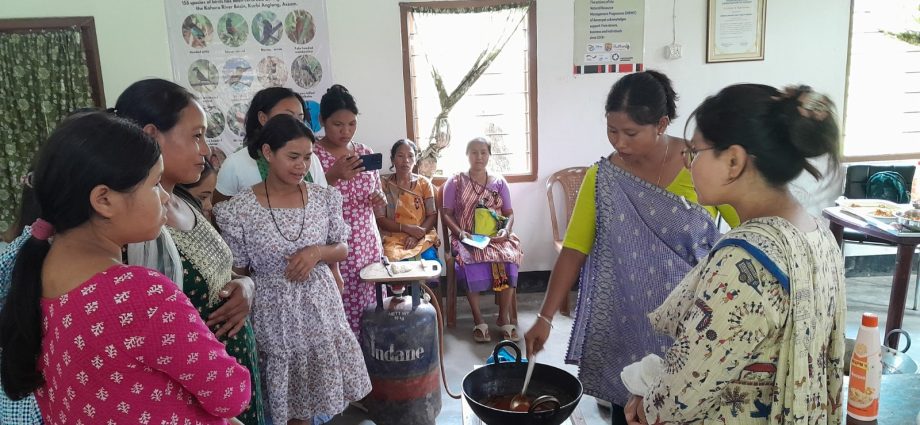Guwahati: Aaranyak organised a one-day food processing training program in collaboration with CRMHS at the Community Resource Centre, Chandrasing Rongpi village, Karbi Anglong, Assam. The event aimed to equip rural women with techniques for processing different kinds of food products from readily available raw materials for commercial purposes as well as a source of alternative livelihood options. The training session was attended by 20 local women from Kohora River Basin and Diring River Basin.
The comprehensive food processing training session introduced alternative and sustainable livelihood options by equipping participants with basic essential skills and knowledge in food processing. This holistic program covered a wide range of topics, including basic food safety and hygiene, local produce identification and selection, various preservation techniques, value-added product development, packaging and labelling etc. By focusing on locally available produce and incorporating traditional knowledge, the training ensured relevance and sustainability.
The training sessions were coordinated by two local experts, Mina Tokbipi from Engle Pathar village and Larbin Timungpi from Bakring Engti village, both of whom have experience in these operations. Joshna Terangpi of Aaranyak also shared various techniques and processes, including quantification and requirements for the value addition of farm products. The program taught participants the steps and processes involved in making three common value-added products: pickles, jam, and chilli sauce.
These skills will enable the local women to convert locally available, often underutilized resources into value-added products, creating a sustainable source of income. The focus on business acumen alongside technical skills empowers the women not only to produce but also to effectively market and sell their products, fostering financial independence.
One of the participants, Protima Rongpipi from Phumen Engti village, shared, “The food processing training was very clear and precise. We now feel confident using the recipes, equipment, and techniques—otherwise, even minor errors could change the overall quality of the processed products. We’ll be able to process food and reduce waste, and that will help us financially and save time.”

